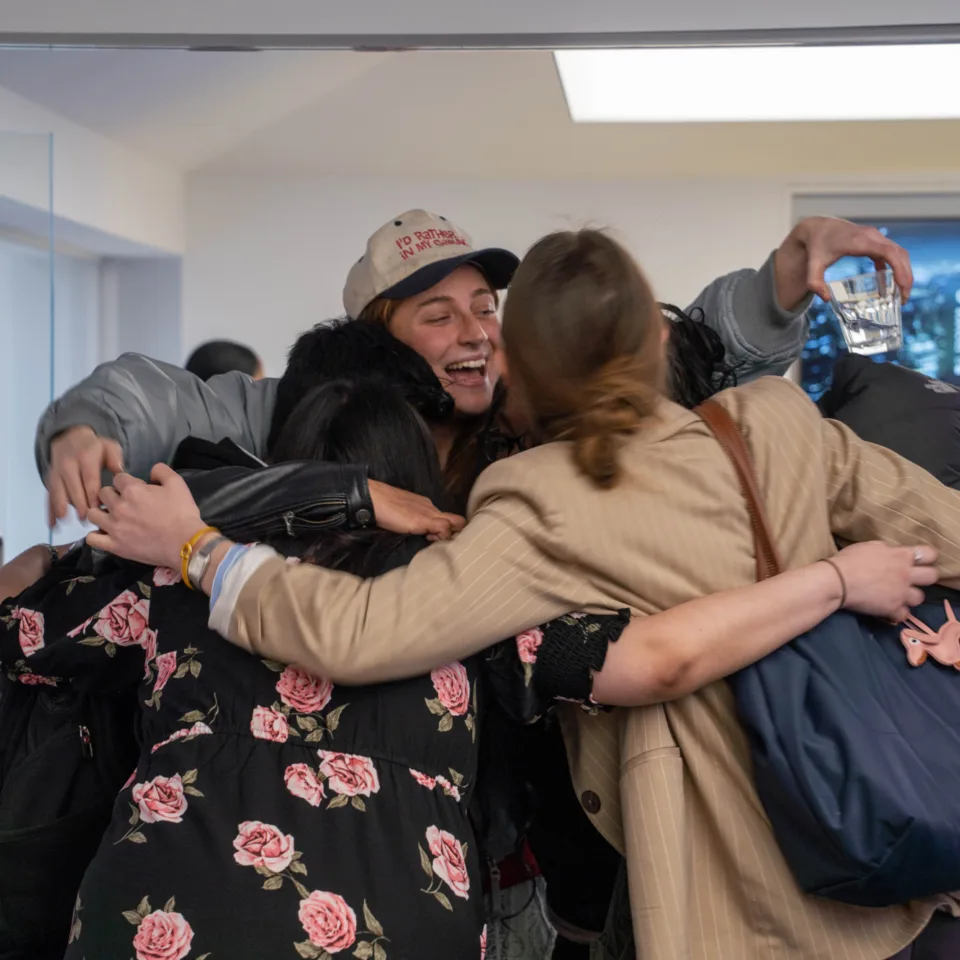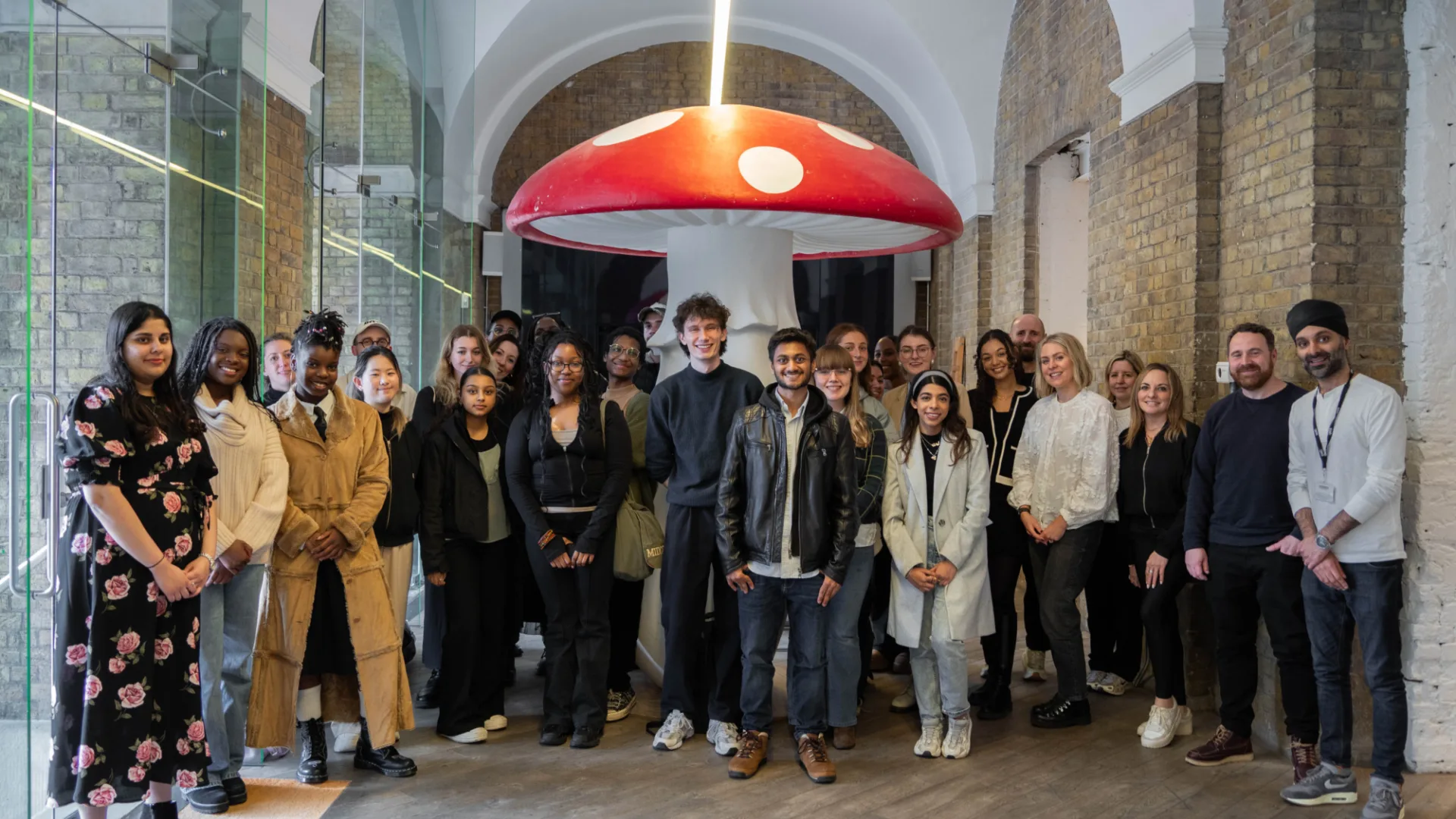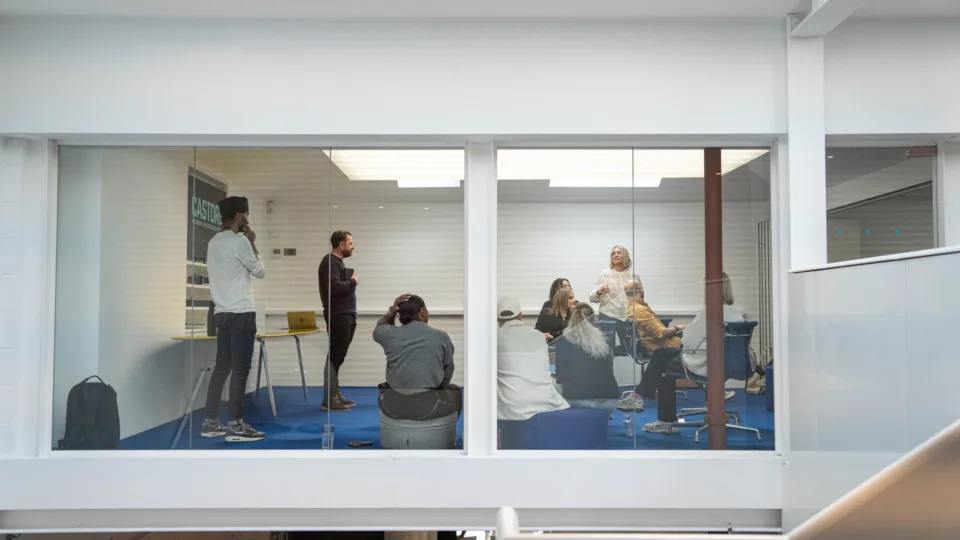
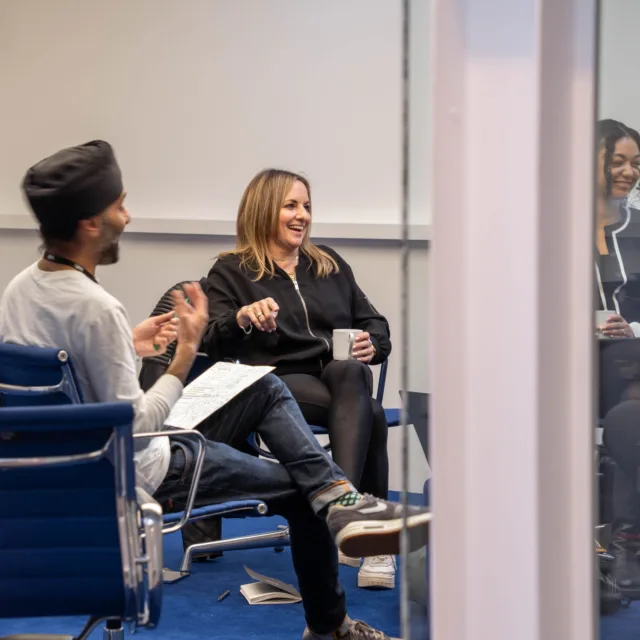
It’s no secret that the creative industries have a big diversity problem. Stats show that only 11.4% of industry jobs are held by Black, Asian and minority ethnic people, and only 11.5% of creative directors are women. The Creative Industries Policy and Evidence Centre also found that class-based exclusion is more pronounced in the creative industries than in any other industrial sector: to make it here, you need the sort of economic, social and cultural resources that are not fairly shared within society.
The tide of awareness brought on by the Black Lives Matter movement in 2020 may have brought visibility to Black creators, but it also catalysed the need for agencies to go further to embed real cultural change. Agencies must look inwards, have difficult conversations, and acknowledge their failings in order to understand why talent isn’t coming through.
At v3, research we conducted highlighted that particularly among young and emerging talent, a lack of role models and support system prevents them from gaining the experience and network they need to break through. We’ve always believed that brilliance lies beyond the status quo, and that we need to look outside the obvious places to find it. When we encounter different perspectives on the world, the work gets better. But we also realised that to start truly living this value, we needed to find a way to support the next generation of creatives, nurture their talent, and give them the tools, language and network to participate in the future of our industry.


Enter Creative Shift — University of the Arts London’s programme that provides students from underrepresented groups with opportunities to develop their networks, working relationships, and professional practice in the creative industry. Participants work collaboratively with industry partners on live briefs, masterclasses, community networking groups, internships, and talks.
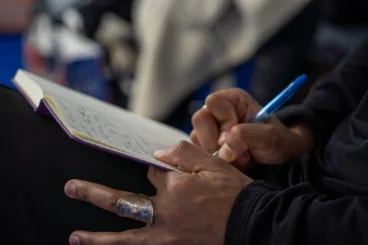
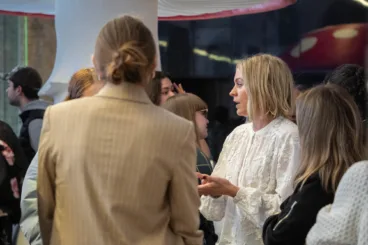
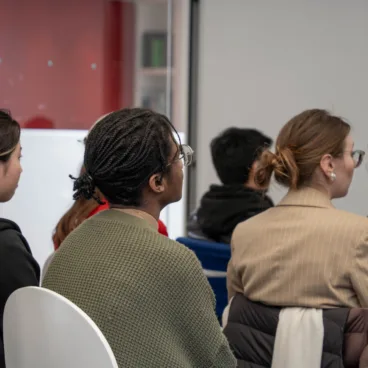
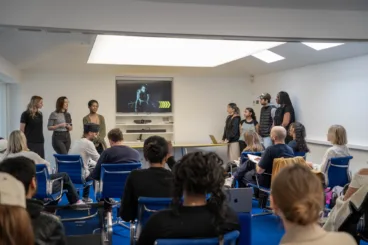
Since partnering with Creative Shift four years ago, we’ve witnessed 45 brilliant students take on live briefs for NOW, Flannels and Castore. This year’s cohort will be stepping up to the plate for Sky Sports, working in teams to design and pitch their ideas over 11 weeks.
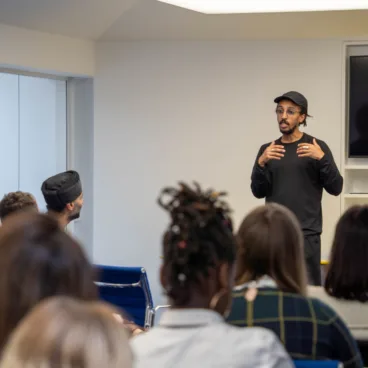
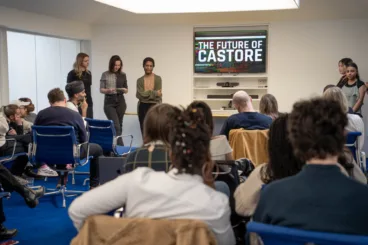
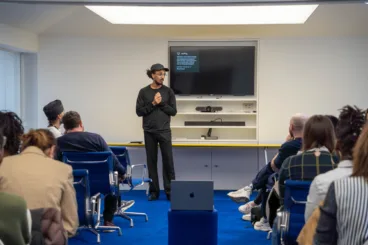
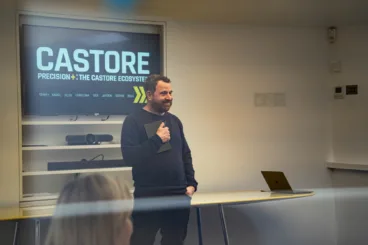
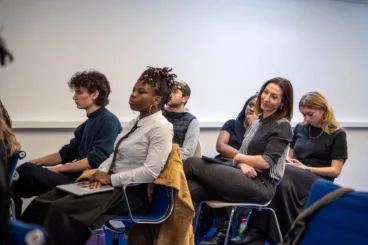
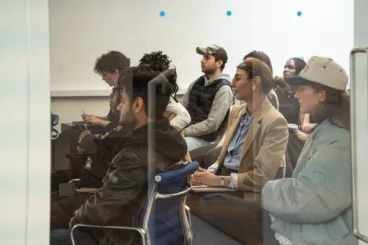
Envisioning a brighter, more diverse future for the creative industry isn’t something that happens overnight. At v3, we still have lots of work to do — but Creative Shift is a positive force that helps emerging talent to visualise their future and will get us to that more equitable future, faster.
Applications for this year’s creative shift programme open on 21st October for any UAL students who identify as Black, Asian or minority ethnic, are in the care system or a carer, had free school meals, or are the first person in their family to go to university. To explain not only the value but also the necessity of overcoming these barriers through tangible action, we spoke to Creative Shift’s Head, Tessa Read, and Employability & Industry Manager, Sat Sehmbey.
What are the key barriers to emerging talent choosing a career path in the creative industries?
Tessa: The workforce in cultural occupations and cultural institutions is marred by inequality, especially around ethnicity, social class and disability. The issues facing young people accessing the creative industries are well documented and nothing new: there’s a lack of transparency around recruitment practices, nepotism, and unpaid labour.
To thrive in the creative industries is dependent on professional networks, yet in many cases this is a closed shop and very much dependent on who you know, not what you know. Moreover, precarity in the creative industries most adversely affects those who are from economically disadvantaged backgrounds, who are more likely to leave the sector and seek economic security in less precarious sectors. The cost-of-living crisis is compounding these issues by applying further pressure to young people who desperately need an entry point into the working world.
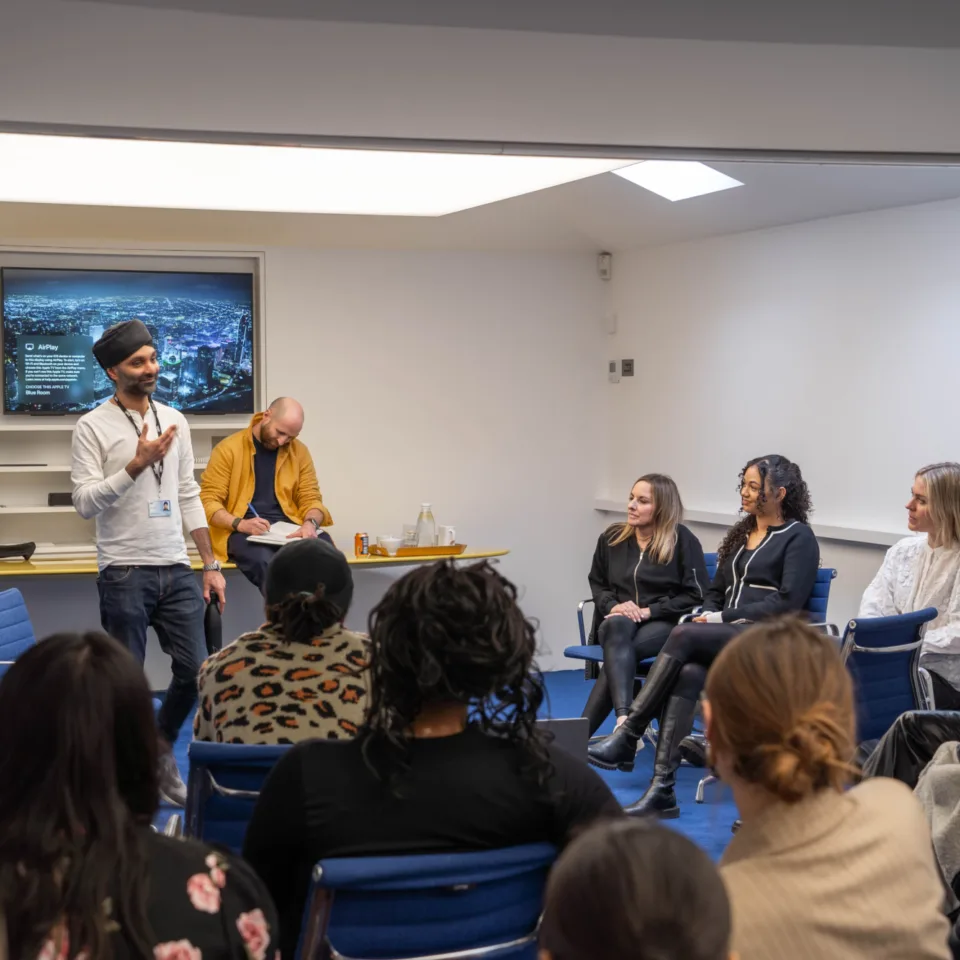
What are the key barriers to agencies taking meaningful action to increase diversity?
Tessa: I don’t think you achieve an organisation-wide cultural shift if you don’t have investment from the whole of the organisation. All too often responsibility sits with a few committed individuals or the EDI team, without wider senior leadership buy-in. This can cause exhaustion for those involved and isn’t sustainable.
Change instigated at the top of the organisation ensures systemic organisational change, as opposed to short-term areas of good practice. I also think it's important not to shy away from having difficult conversations — all too often people skirt around the issues or are totally oblivious to what is playing out in terms of power dynamics and the marginalisation of individuals who do not have their voices heard.

What advice can you give a company looking to diversify?
Tessa: There’s no quick-fix answer, but acknowledging that there’s a problem is the first step. It’s about recognising that making your organisation more equitable will take time and investment, and that meaningful change goes beyond inclusive hiring practices. There’s also a need to focus on changing working culture so people can show up in the workplace as their whole selves and feel safe to share their ideas and concerns.
The focus should move beyond who gets into an organisation to include what their experience is like once they are in, and whether there are opportunities to progress. Organisations need to ensure they're doing the work internally to transform their organisational culture, rather than expecting the marginalised people they hire to do that labour for them which in turn perpetuates the cycles we are trying to break.

What are the benefits to both industry and emerging talent from programmes like this?
Sat: For students, this experience is invaluable. They gain a deeper understanding of what it's like to work in the creative industries. During the live brief, they gain insights into the company and work culture and can make a better-informed decision on their career path. This hands-down beats an industry professional coming to give a talk for an hour about what it's like to work in the industry.
Students can expand their creative networks and receive direct mentorship from industry professionals — an advantage that isn't always available in academic courses. They also develop crucial skills such as teamwork, presentation and pitching, leadership, and confidence building through a learn-by-doing approach. And by engaging with students through initiatives like these, companies gain a deeper understanding of how to diversify their workforce in an inclusive and meaningful way.
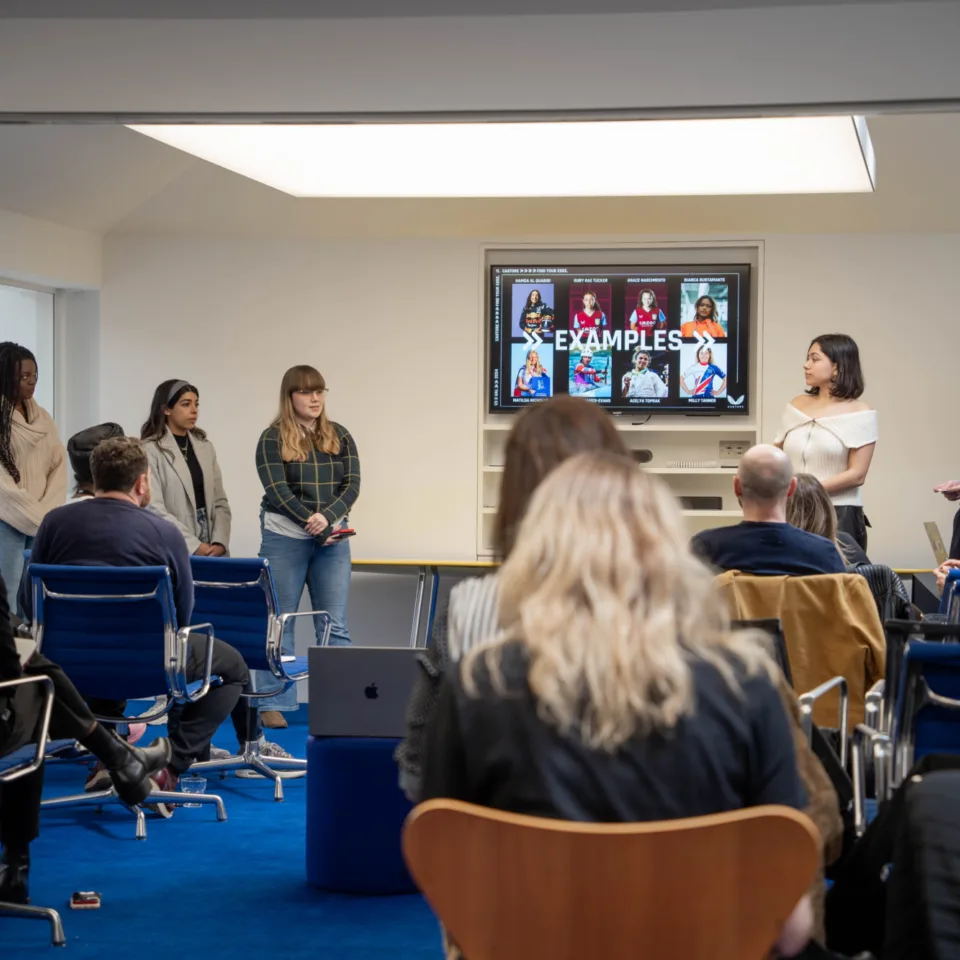
What’s the best or most surprising feedback you’ve had from participants?
Sat: It's hard to pick one quote that sums it all up as every experience is beautifully unique, but here are a few:
“I felt like I had finally been trusted with something ‘big’. For someone who generally doesn’t get big opportunities, this was fundamental to my progression into my creative career.”
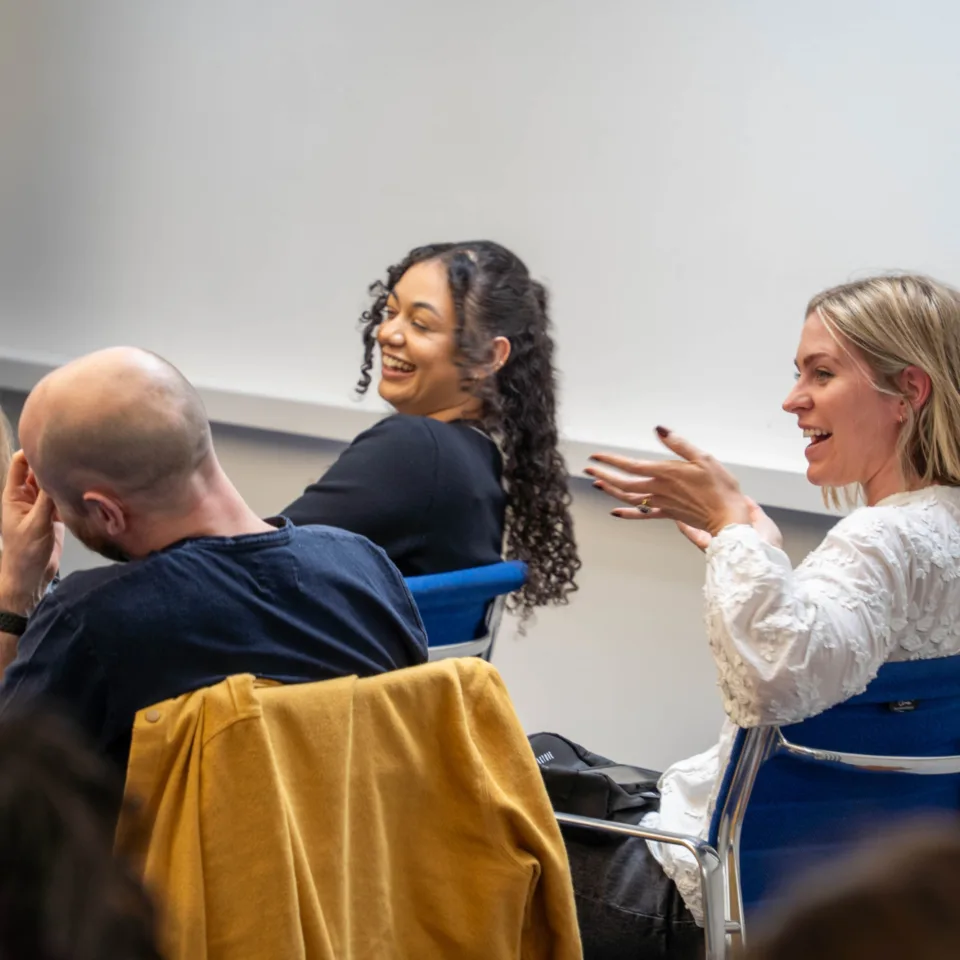
What's next for Creative Shift?
Sat: Success for Creative Shift is to continue deepening and expanding our partnership with the team at v3, enabling us to provide even more hands-on experiences that are both unique and invaluable for our students’ career development. v3 partners with some amazing brands and organisations worldwide, and developing an international collaboration is a great goal for us to work on together.
Beyond student achievement, we are incredibly passionate about seeing change take place in the creative industries, where diversity and inclusion is embraced across the sector and the next generation of creatives are continuously inspired to make a positive contribution and difference to the world.
Apply here — Applications for Creative Shift 2025 open on 21st October
